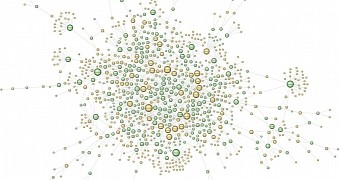In an internal investigation codenamed "Orangemoody," English Wikipedia's volunteer editors have banned 381 "sockpuppet" accounts they suspect of being controlled by the same group of users practicing a paid-for editing policy.
Wikipedia is the Internet's most worshiped source of information, providing important (and sometimes moderately accurate) details on a very wide variety of topics and domains.
Its pages are a treasure chest for students, experts, researchers, journalists, and every housewife around the globe.
Unfortunately, for this very same reason, the service has been the target of PR companies that offer to edit certain pages dealing with topics, individuals, and companies, for a "moderate" fee.
One such example is the case of consulting firm Wiki-PR, which abused this tactic in 2013, and Wikipedia admins had to eventually ban hundreds of dummy accounts.
381 "black hat" accounts blocked after Wikipedia's internal investigation
Now, following a long and in-depth investigation, Wikipedia editors have brought the bar hammer down on another set of accounts, yet unattributed to another PR firm.
"There are 381 socks currently being blocked as a result of this investigation. All of the socks [sockpuppets, fake accounts] are linked by both technical data and behavioural evidence," say Wikipedia admins.
According to their research, these sockpuppet accounts worked in a similar fashion, making a large number of useless edits in order to display a history of activity.
They later moved on to adding shady links as sources, creating articles with improper attribution and sources, and even marking each other's newly created pages as "reviewed."
A list of the articles deleted by Wikipedia admins can be viewed in Wikipedia's internal user management section, most them being of semi-known personalities, activating in domains like photography, science, literature, movies, and music.
Additionally, many of the deleted pages were also of various startups. In our own investigation, some of these startup names didn't even return a proper homepage URL using a basic Google search, which evidently makes you think they may have been part of some kind of PR and marketing campaign to gain exposure in various mediums, including Wikipedia.

 14 DAY TRIAL //
14 DAY TRIAL //